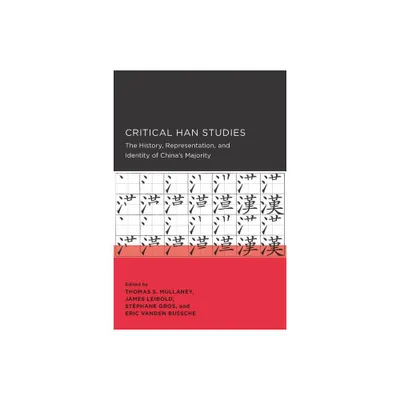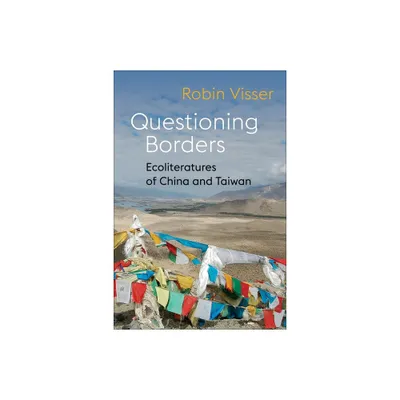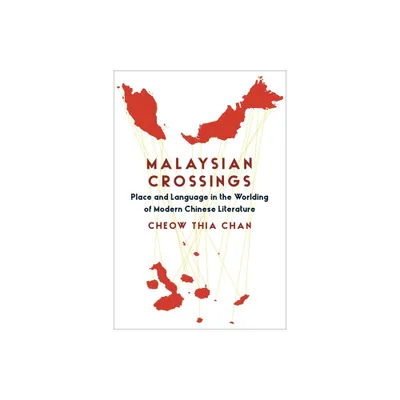Home
Classics and Interpretations: The Hermeneutic Traditions Chinese Culture
Loading Inventory...
Barnes and Noble
Classics and Interpretations: The Hermeneutic Traditions Chinese Culture
Current price: $180.00


Barnes and Noble
Classics and Interpretations: The Hermeneutic Traditions Chinese Culture
Current price: $180.00
Loading Inventory...
Size: Hardcover
*Product Information may vary - to confirm product availability, pricing, and additional information please contact Barnes and Noble
In recent years in the "West," scholars have attempted to unravel old constructs of interpretation and understanding, using the discipline of hermeneutics, or the scientific study of textual interpretation. Borrowed from students of the ever growing body of biblical interpretive literature that originated in the early Christian era, theoretical hermeneutics has given many contemporary scholars potent tools of textual interpretation.
Classics and Interpretations
applies this method to Chinese culture. Several essays focus on hermeneutic traditions of Neo-Confucianism. Others move outside of these traditions to attempt an understanding of the role of hermeneutics in Taoist and Buddhist textual interpretation, in Chinese poetics and painting, and in contemporary Chinese culture.
This volume makes a concerted effort to remedy our ignorance of the Chinese hermeneutical tradition. Part 1, "
The Great Learning
and Hermeneutics," demonstrates the use of commentary to define how the individual creates his social self, and discusses differing interpretations of the
Ta-hsueh
text and its treatment as either canonical or heterodox. Part 2, "Canonicity and Orthodoxy," considers the philosophical touchstones employed by Neo-Confucian canonical exegetes and polemicists, and discusses the Han canonization of the scriptural Five Classics, while illuminating a double standard that existed in the hermeneutical regime of late imperial China. Part 3, "Hermeneutics as Politics," discusses the transformation of both the classics and scholars, and explores the dominant hermeneutic tradition in Chinese historiography, the scriptural tradition and reinterpretation of the
Ch'un-ch'iu
, and reveals the pragmatism of Chinese hermeneutics through comparison of the Sung debates over the
Mencius.
The concluding sections include essays on "Chu Hsi and Interpretation of Chinese Classics," "Hermeneutic Traditions in Chinese Poetics and Non-Confucian Contexts," "Reinterpretation of Confucian Texts in the Ming-Ch'ing Period," and "Contemporary Interpretations of Confucian Culture."
Through these literate and brilliantly written essays the reader witnesses not merely the great breadth and depth of Chinese hermeneutics but also its continuity and evolutionary vigor. This volume will excite scholars of the Confucian, Buddhist, and Taoist systems of thought and belief as well as students of history and hermeneutics.
Classics and Interpretations
applies this method to Chinese culture. Several essays focus on hermeneutic traditions of Neo-Confucianism. Others move outside of these traditions to attempt an understanding of the role of hermeneutics in Taoist and Buddhist textual interpretation, in Chinese poetics and painting, and in contemporary Chinese culture.
This volume makes a concerted effort to remedy our ignorance of the Chinese hermeneutical tradition. Part 1, "
The Great Learning
and Hermeneutics," demonstrates the use of commentary to define how the individual creates his social self, and discusses differing interpretations of the
Ta-hsueh
text and its treatment as either canonical or heterodox. Part 2, "Canonicity and Orthodoxy," considers the philosophical touchstones employed by Neo-Confucian canonical exegetes and polemicists, and discusses the Han canonization of the scriptural Five Classics, while illuminating a double standard that existed in the hermeneutical regime of late imperial China. Part 3, "Hermeneutics as Politics," discusses the transformation of both the classics and scholars, and explores the dominant hermeneutic tradition in Chinese historiography, the scriptural tradition and reinterpretation of the
Ch'un-ch'iu
, and reveals the pragmatism of Chinese hermeneutics through comparison of the Sung debates over the
Mencius.
The concluding sections include essays on "Chu Hsi and Interpretation of Chinese Classics," "Hermeneutic Traditions in Chinese Poetics and Non-Confucian Contexts," "Reinterpretation of Confucian Texts in the Ming-Ch'ing Period," and "Contemporary Interpretations of Confucian Culture."
Through these literate and brilliantly written essays the reader witnesses not merely the great breadth and depth of Chinese hermeneutics but also its continuity and evolutionary vigor. This volume will excite scholars of the Confucian, Buddhist, and Taoist systems of thought and belief as well as students of history and hermeneutics.


















